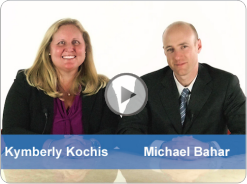

Waymo Must Show “Actual Use” In Trial Against Uber
Posted on Jan 5, 2018 in Industry News, Technology Impacting Auto Insurance | Comments Off on Waymo Must Show “Actual Use” In Trial Against Uber
U.S. District Judge William Alsup in the Northern District of California recently issued revised jury instructions in advance of the February trial between Waymo and Uber regarding trade secret misappropriation—specifically, the use of Waymo’s self-driving car technology. The proposed jury instructions require Waymo to prove actual use of the trade secrets, as opposed to merely proving...
Aurora Innovation, Driverless Car Start-Up, Announces Transactions with Hyundai and VW
Posted on Jan 5, 2018 in Industry News, Technology Impacting Auto Insurance | Comments Off on Aurora Innovation, Driverless Car Start-Up, Announces Transactions with Hyundai and VW
Both VW and Hyundai have announced deals with Aurora Innovation, a driverless car start-up from a former Tesla Autopilot program director. Although there were few details released about the nature of the deals, both VW and Hyundai have expressed a desire to roll out their autonomous vehicles. Hyundai, for example, has said that it is aiming for a roll-out of autonomous vehicles by the...
Waymo Driverless Ride-Hailing Service Will Insure Passengers Through Insurance Tech Start-Up
Posted on Dec 19, 2017 in Industry News, Insurance Developments and Trends, Technology Impacting Auto Insurance | Comments Off on Waymo Driverless Ride-Hailing Service Will Insure Passengers Through Insurance Tech Start-Up
Waymo LLC recently announced that it will use Trov Inc., a five-year old insurance start-up, to insure riders using its driverless ride-hailing service. Waymo, which is the autonomous car unit of Alphabet Inc. (Google’s parent), is hoping to beat others in the auto and ride-hailing industry to introduce its fleet of driverless vehicles; Waymo CEO stated in November 2017 that they were...
UK Considering Bill on Automated and Electric Vehicles
Posted on Oct 19, 2017 in Technology Impacting Auto Insurance | Comments Off on UK Considering Bill on Automated and Electric Vehicles
A new bill introduced in the UK Parliament would govern self-driving cars and electric vehicles. The bill will require insurance for both the automated vehicle itself and the driver of an automated vehicle. It provides that the vehicle insurer will be liable for accidents caused by an automated vehicle that is driving itself; however, if an accident is caused by the human driver, the...
How Highly Automated Vehicles Will Drive Legal Change
Posted on Aug 7, 2017 in Industry News, Technology Impacting Auto Insurance | Comments Off on How Highly Automated Vehicles Will Drive Legal Change
Those watching the automated vehicle industry expect a shift in the next few decades from humans driving cars with some automated functions to fully or near-fully autonomous vehicles that need limited or no human driver involvement. When highly automated vehicles are prevalent on the road, the legal risks associated with manufacturing cars and driving them will naturally be allocated...
House Subcommittee Panel Unanimously Approves Self-Driving Legislation
Posted on Jul 20, 2017 in Insurance Regulation, Technology Impacting Auto Insurance | Comments Off on House Subcommittee Panel Unanimously Approves Self-Driving Legislation
The Energy and Commerce Committee’s Digital Commerce and Consumer Protection panel unanimously approved a bill that would be Congress’s first attempt at adopting laws for autonomous vehicles. The bill’s bipartisan support was due in part to the Republican leadership’s adoption of Democratic proposals on safety oversight by federal regulators. In essence, the bill would allow...


